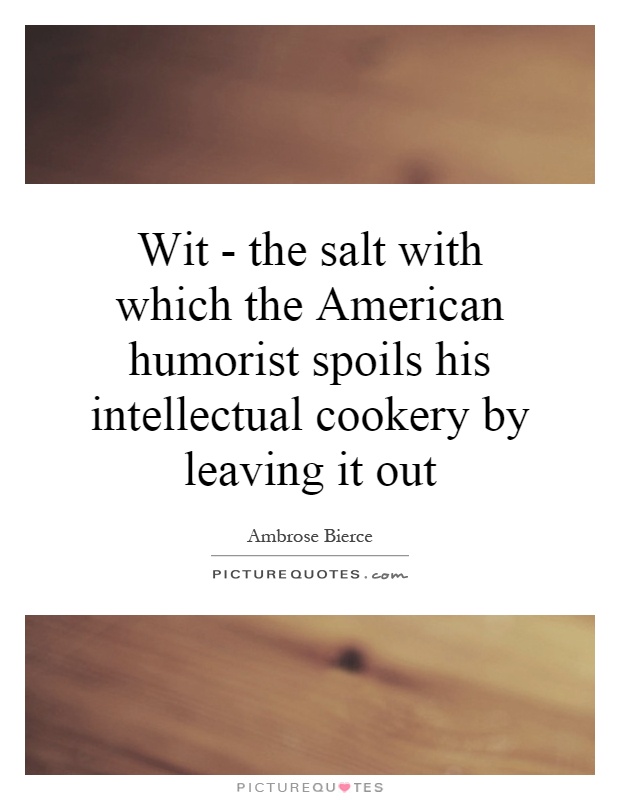Wit - the salt with which the American humorist spoils his intellectual cookery by leaving it out

Wit - the salt with which the American humorist spoils his intellectual cookery by leaving it out
Ambrose Bierce, a renowned American humorist and satirist, was known for his sharp wit and biting sarcasm. His writing was often laced with clever wordplay and dark humor, making him a master of satire. Bierce's wit was like a double-edged sword, cutting through societal norms and exposing the absurdities of human behavior.In his essay "Wit - the salt with which the American humorist spoils his intellectual cookery by leaving it out," Bierce explores the importance of wit in humor and intellectual discourse. He argues that wit is essential for adding flavor and depth to one's writing, much like salt enhances the taste of food. Without wit, Bierce suggests, intellectual discourse becomes bland and uninteresting.
Bierce's own writing is a testament to the power of wit. His famous work, "The Devil's Dictionary," is a collection of satirical definitions that skewer various aspects of society and human nature. Through his witty and incisive commentary, Bierce exposes the hypocrisy and folly of the world around him.
One of Bierce's most famous stories, "An Occurrence at Owl Creek Bridge," is a prime example of his skillful use of wit. The story follows a Confederate sympathizer who is about to be hanged by Union soldiers. As the protagonist imagines his escape and eventual reunion with his family, Bierce reveals the harsh reality of war and the futility of human ambition. The twist ending of the story is a masterstroke of wit, leaving readers stunned and questioning their own perceptions.
Bierce's wit was not just a tool for entertainment; it was a weapon against ignorance and complacency. Through his writing, he challenged his readers to think critically and question the status quo. In a world filled with hypocrisy and deceit, Bierce's wit was a beacon of truth and clarity.












 Friendship Quotes
Friendship Quotes Love Quotes
Love Quotes Life Quotes
Life Quotes Funny Quotes
Funny Quotes Motivational Quotes
Motivational Quotes Inspirational Quotes
Inspirational Quotes